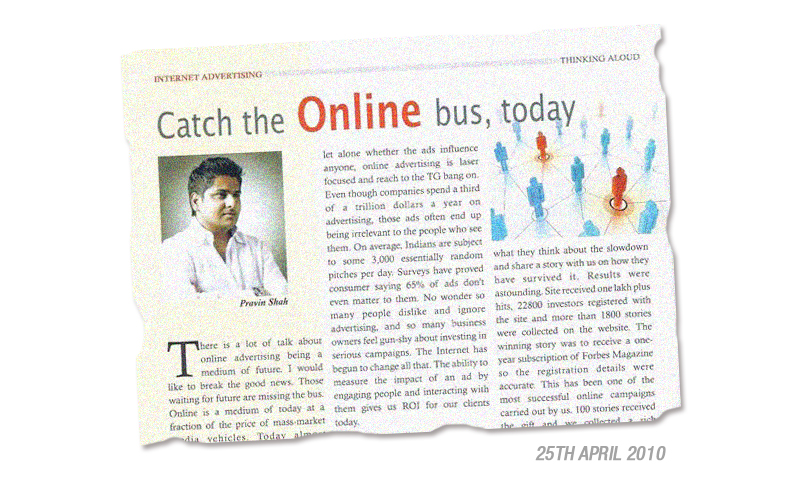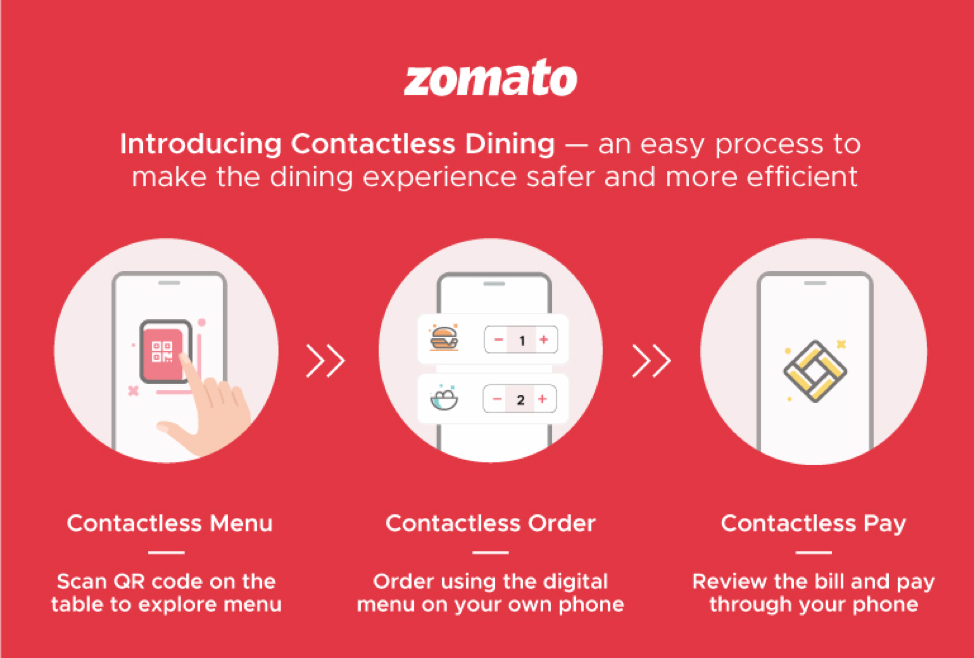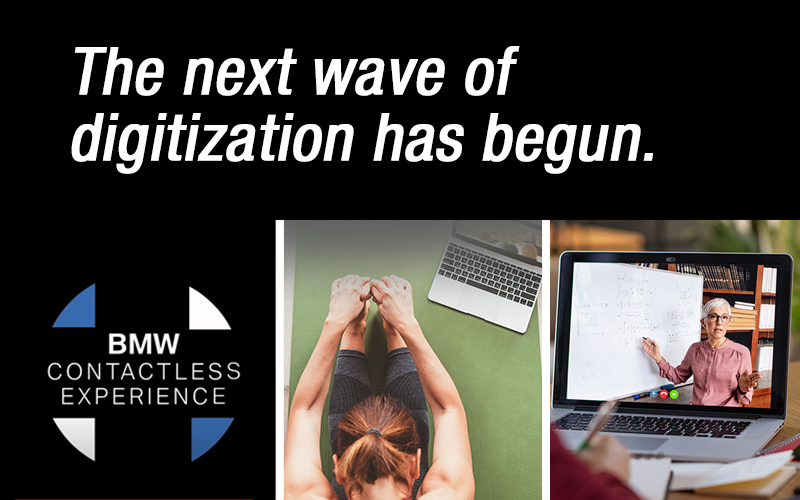Luxury, Fine Dining and Museums Exhibits – are some of the many industries that have started to re-invent themselves to brave the new change.
‘April 25, 2010’ – exactly a decade ago, sitting in my small start-up office, when internet was the new buzzword, I had envisaged its future and the way it will re-invent the media industry.

The article clearly pointed at the urgency of not missing the digital bus and those waiting for the future to happen are missing the bus. While the article focused on digital advertising, the core insight was the rapid on boarding of consumers in 2010 on digital medium. And today, I see Facebook investing $5.7 Billion in Reliance Jio to further enhance the digital ecosystem is a testimony to the fact that the next wave has been initiated.
The Last decade of digitization has been about on-boarding consumers, connecting them and gathering data with all the tools they interact with. The coming decade is going to explode and accelerate the digital eco-system by connecting everything to everything. The future is Contactless. Intuitive. Super-intelligent
What accelerates this next wave of digitization is our status quo. One fine morning our normal routine lives of going to offices, visiting malls to shop, those movie theatre outing and fine dining – all changed. In the wake of Covid-19, the entire world adapted ‘complete lockdown’ as the key strategy to fight the pandemic. Staying at home became our new routine and with it ‘the digital, virtual engagement’ became our new normal.
And in time like this Omninternet is the most relevant. A change so massive has also pushed us and brands supporting our lifestyles to change their approach. Brands are fast changing their business models and marketing to contactless, intuitive and super-intelligent. Let us observe and account as to what is changing.
The 21 Day Rule
The rule dictates that it takes 21 days to form a new habit. And collectively it is already three months that the world has observed social distancing and lockdown and the first thing that changed was our work ways. There has been a long dilemma of “Are one-on-one meetings really necessary” in the business world. The business meetings at client office incurs precious time of travelling from one destination to another. The new directive of work-from-home has taught us how to collaborate remotely.
Covid-19 has forced work-from-home on organizations across the world. Leading HR heads of the world state and share that this forced trial comes as a blessing in disguise. It emerges as a win-win option for both employers and employees. For employees, benefits include saving on commute and more flexibility when it comes to work-life balance. For employers, the pluses are establishment cost-saving and enhanced productivity. The common belief is that virtual workplaces will be the future of work.
Start-ups like Slack & Zoom and established tech players like Google & Microsoft are offering their tools for free, with the aim that virtual workplaces will be a way of life post pandemic. Be it Microsoft’s ‘productivity suite’, Google business subscriptions all followed suit, or zoom that has lifted limitations and exceeded conversation to 40 minutes they all are enabling businesses across the globe to work from home for free.
Luxury
The time we are in is a storm that will spare those who adapt quickly to the wave of uncertain overhauls. Online search interest for luxury sharply declined in April 2020, hitting its lowest level since data tracking began. And this trend has had a domino effect on the stock market, with the S&P Global Luxury Index experiencing its lowest point.

A profound economic crisis is breathing down our necks and it becomes an imperative to adapt. The key is to initiate brainstorming and pivot. Think of innovations that will cater to the new needs of the community post pandemic. If your business structure allows it, now is the time to recalibrate smartly to answer your customers’ changing needs.
Soeder*, a soap company in Vienna that creates and sells sustainable beauty products, completely reorganised its manufacturing process to rapidly produce a natural hand sanitiser. A move that enabled it to avoid the ditch, sustain and grow while staying true to its values.
Yet another case in point is the leading luxury car manufacturer BMW that managed to pivot interestingly with its all new, ‘Contact less experience’. A portal that enables BMW aficionados and aspirers to own their dream without stepping out of the comfort of their homes. They can find, customize their BMW and then buy it from the online shop that allows them to connect to the nearest dealership, avail finance, and complete formalities. They create a seamless buying process and then ensures that their car before delivery will undergo a thorough sanitation process.
They have also started a concierge service that allows potential buyers to schedule a test drive remotely, where sanitised vehicles will be provided. And have also made room for immense flexibility. Read their note to customers on their website here as their response to Covid-19. And this reassuring communication and actions makes it a brand that adapts.
https://www.internationalbmw.com/response-to-covid-19.htm
Dining
This pandemic is sure a recipe of disaster for the food industry, from eating-out, fine dining to ordering in the health scare has stalled it all. The shutter-down due to lockdown and the work-from-home stealing away the lunch crowds at the local QSRs has made the already challenging food business even tougher. So much so that the share of consumers dining at sit-down restaurants has declined by 85.2%. And only 16% are ordering in. And around the world more and more are flaunting their home-cooked online.
As a pivot the industry is adapting the idea of delivering meal kits to the set of people who have suddenly been exposed to and forced into the task of home cooking. These kits consist of meal ingredients ready to be cooked quickly and are sterilized against any bacteria or viruses.
The leading food-delivery app, Zomato too has innovated its way into ensuring survival and growth in these tough times, especially post corona virus, when the fear will be fresh in the minds of people. It introduces contactless dining for the post-lockdown world.
Contactless Dining minimises customer contact with anything that someone else might have touched – by eliminating the use of high-touch elements at restaurants. Imagine a full-stack tech enabled dining experience, but with the least risk to health and safety.

https://www.zomato.com/blog/contactless-dining
Fitness
Governments and administrations around the world first acted upon shutting access to areas attracting large number of people. One of them was Fitness Studios. This was a sudden shock to the studios but thanks to technology, the sudden shift has inspired creativity and flexibility for gyms and studios. These businesses which are largely dependent on physical locations and on-site staff, bounced back with digital tools to deliver personalised training and diet consultations via Video conferencing tools. Fitness industry has been very pro-active, thanks to the tools available today.
This habit is now preparing us to be self-sufficient with workout. A new way of collaborating with the trainer and working out from anywhere in the world. With this habit, the seasoned gym goes can subscribe to the best training program
The digified consumer will be the key catalyst to digital acceleration.
Museum & Cultural Exhibits
Cultural institutions and spaces have been badly hit by Corornavirus as they closed their doors to control the spread. But consumer appetite for online experiences is booming and being stuck at home, one might as well take a scroll through the Louvre. The British Museum’s online collection page jumped from roughly 2000 daily visits to 175,000 early last week, and is now averaging 75,000 a day.
I personally took the tour at Natural History online platform, and its like you are in there, walking and immersed. You may try it by clicking on this link.
https://naturalhistory.si.edu/visit/virtual-tour
The power of Augmented and Virtual Reality, AI and platforms like Google Art are making art more accessible than ever. And everything is seeing a boost, because the audience is looking for newer ways to spend time online.
Online Learning
Ed-tech finally saw a spike from audience across age groups. Zoom became the new class-room. Teacher and students collaborated online. Students adopting to a new method of learning. Worksheets being filled online. While app like Byjus have been the innovators in this space in India, it’s this pandemic that has really pushed schools and Universities to adopt to the new ways of collaboration. Everyone have started ramping up their tech-quotient for delivering curriculum.
I found a very insightful video from ORF, in conversation with Ronnie Screwvala, EdTech Entrepreneur and Founder and Chairman at upGrad, discussing the implications of the pandemic and consequent lockdowns as an opportunity for the education sector
Executive education, skills development have seen a tremendous rise. Corporates have subscribed at a large scale for their employees to learn from online platforms like Coursera, Udemy and many more. I have personally subscribed to masterclass.com, I loved the content and the instructors.
This tectonic shift in the world will leave everyone with one question in personal life or business :-
Can it be done online?
The future is ‘digified’. The consumers of tomorrow, who are experiencing the lockdown today have the digital way of life imprinted in them as the scenarios has made virtual dwelling an imperative.
A decade back, I said,
‘Catch the online bus, today’.
‘Today, I say that it is the only bus that travels the growth route, catch it!’
Optimist. Believer. Entrepreneur.
Founder @BigBrandTheory, Certified Change & Innovation Expert, ISB Hyderabad.
Follow Pravin Shah at :




3 Comments